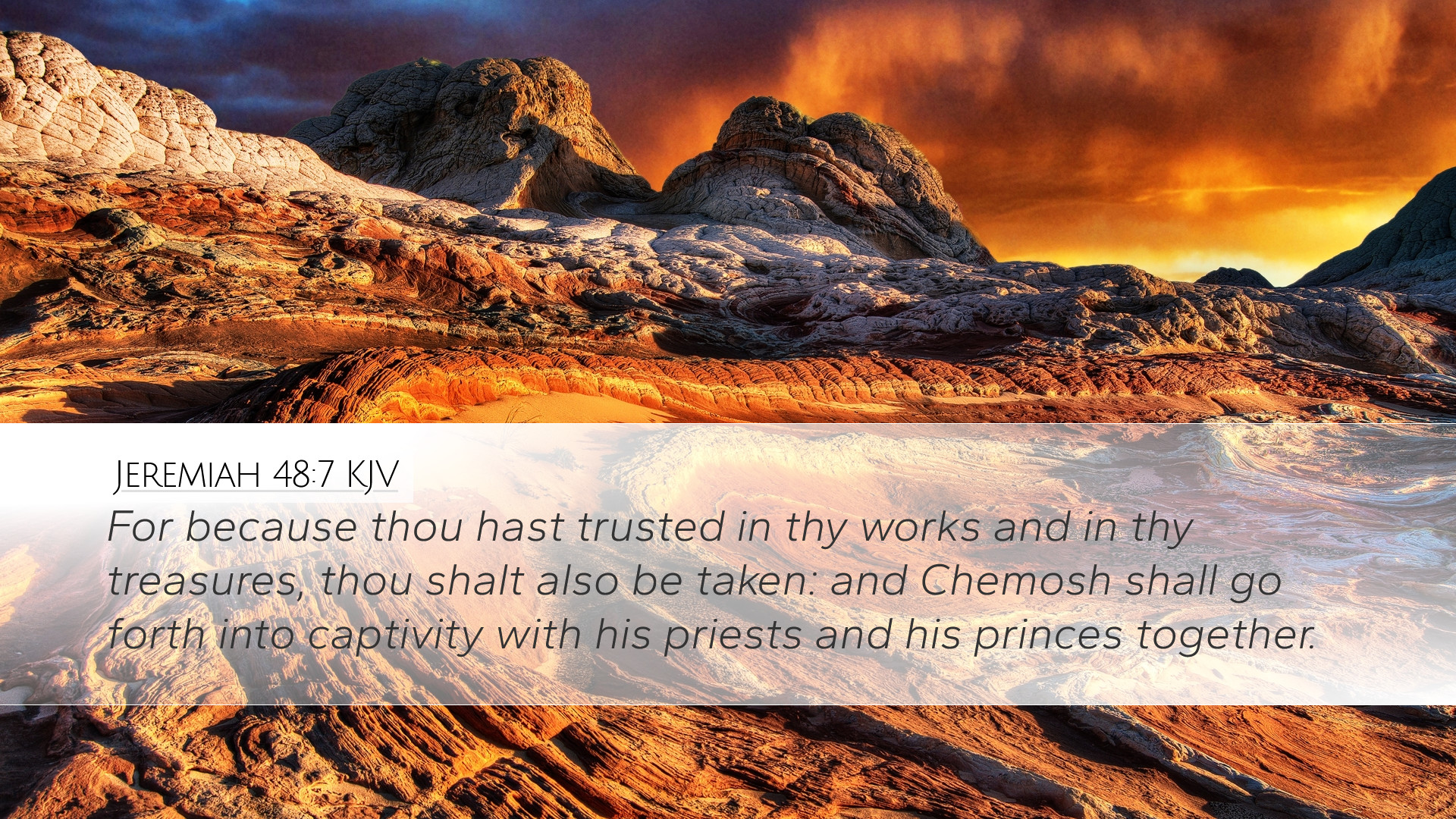Commentary on Jeremiah 48:7
Jeremiah 48:7 states, "For because thou hast trusted in thy works and in thy treasures, thou shalt also be taken: and Chemosh shall go forth into captivity with his priests and his princes."
This verse presents a profound theological insight into the nature of trust and idolatry, particularly in the context of the Moabites, a people frequently at odds with Israel. Here, we draw from comments made by notable public domain commentators, synthesizing their insights for modern readers.
Understanding the Context
In the preceding chapters, Jeremiah articulates God's impending judgment upon Moab, who had been steeped in idolatry and self-reliance.
- Matthew Henry emphasizes the idea that Moab's reliance on their own strength and treasures was their downfall. He suggests that they were overly confident in their military capabilities and wealth, which ultimately proved to be futile.
- Albert Barnes offers a broader understanding, indicating that this trust in earthly security alienated them from God. Barnes highlights that the Moabites had turned to the false god Chemosh, symbolizing their spiritual blindness and misplaced faith.
- Adam Clarke further elaborates on the consequences of this misplaced trust, reminding readers that idolatry leads to enslavement, both spiritually and literally. Clarke points out that Chemosh’s captivity reflects the futility of false deities in times of crisis.
Theological Implications
This verse encapsulates key themes present throughout the Bible: the danger of misplaced trust, the consequences of idolatry, and the sovereignty of God. Each commentator presents unique perspectives that enrich our understanding:
- False Security: Jeremiah warns that those who place their faith in material wealth or military might will face dire consequences. This remains relevant for modern believers; reliance on anything other than God can lead to spiritual ruin.
- God's Sovereignty: The mentioning of Chemosh going into captivity underscores the sovereignty of Yahweh over all gods. Both Henry and Barnes highlight that the very deities that were thought to be protectors became powerless when faced with divine judgment.
- Judgment and Mercy: Adam Clarke provides a poignant reminder that judgment is not devoid of mercy. The destruction of reliance on false gods can pave the way for a return to true worship and reliance on God.
Practical Application for Today’s Believers
Jeremiah 48:7 serves as a crucial reminder for contemporary Christians:
- Self-Examination: Each believer should reflect on what they place their trust in. Is it wealth, status, or something else? This calls for a deeper reliance on God's provision and presence instead of temporal things.
- Confronting Idolatry: Modern idols may not look like ancient deities, but are often found in our priorities, time commitments, and values.
- Spiritual Warfare: Understanding the spiritual ramifications of idolatry can lead believers to become more vigilant in prayer and reliance on God as our refuge and strength.
Conclusion
In summary, Jeremiah 48:7 contains rich theological content relevant for pastors, students, theologians, and scholars alike. It encourages deep reflection on the nature of trust, idolatry, and the character of God in delivering justice. By merging insights from Matthew Henry, Albert Barnes, and Adam Clarke, we gain a holistic view of how this ancient text continues to resonate with God's people today.


